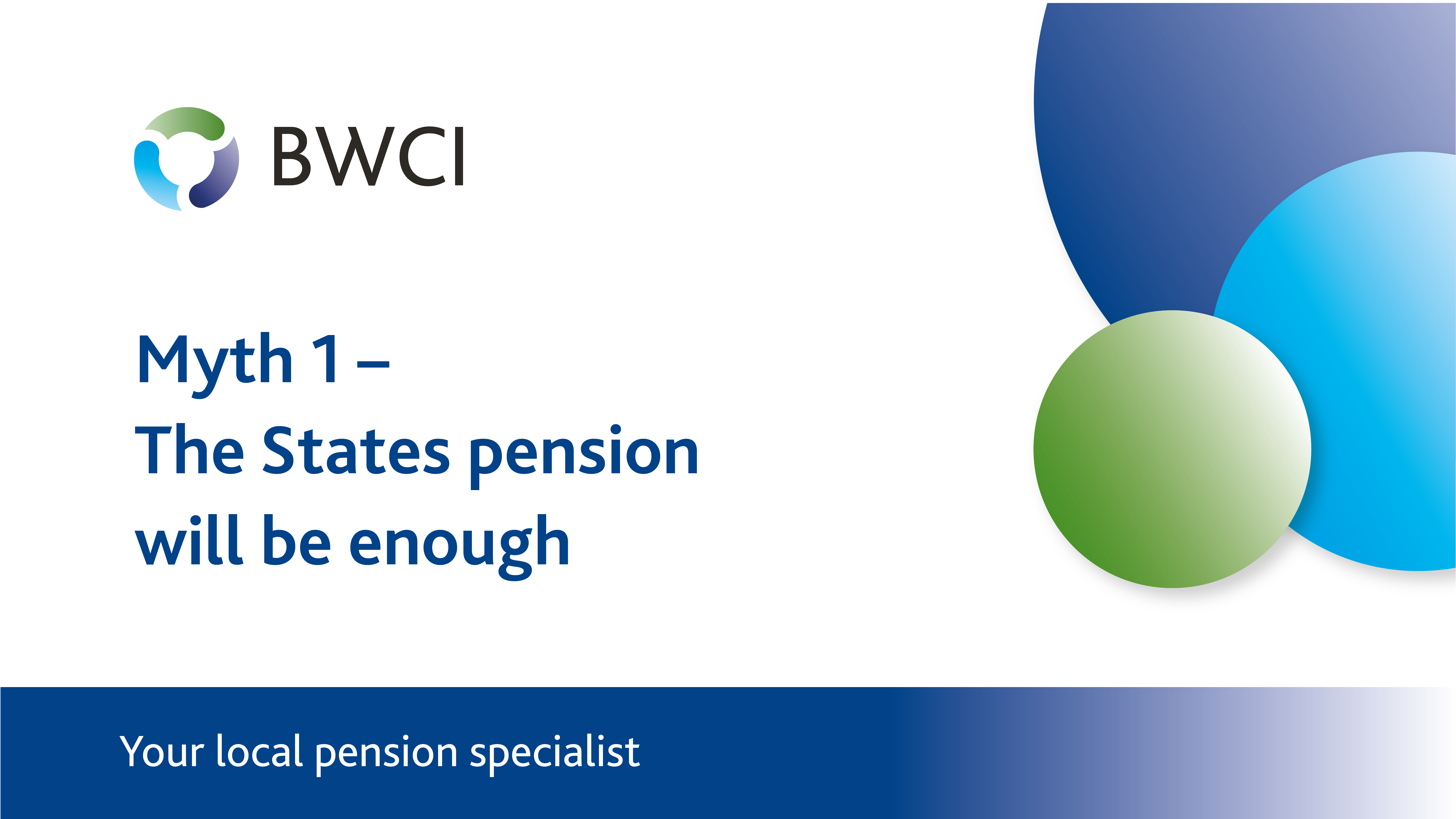
by John Martin
(Please contact John on 01481 728432 or email john.martin@bwcigroup.com
if you wish to discuss this article or anything relating to secondary pensions).
Facts are better than fiction, especially when considering financial options. The pensions sector attracts its fair share of myths and misconceptions, which can leave people feeling bewildered, and unsure of what to do.
This is the first in a series of articles that aim to put the myths to bed, so you can make smart, informed decisions. Gone are the days of a job for life with a generous final-salary pension, so it’s important to take responsibility for your financial security, so you can enjoy your retirement.
Here’s myth number one: The States pension will be enough
First of all, let’s get some context. Data compiled in a survey in 2017 found that only around 35% of employed people between the ages of 16 and 65 in Guernsey and Alderney were saving into a private pension (either occupational or personal pensions).
Those figures have improved in the intervening period, but there is still a significant percentage of people who are intending to rely mainly on the States pension for their retirement, unless they have other forms of investments, savings, and capital.
It’s true that day to day living costs are generally less in retirement, but relying on the States pension means it’s highly unlikely that you’ll be able to maintain the living standards you were accustomed to before retirement.
This year, a full rate States pension for a single person amounts to approximately £12,200 per year (£233.85 per week). However, to get that full rate, you must have paid an average of at least 50 contributions per year over a 45-year period. To put that in perspective, currently only around one quarter of States pensions are paid at the full rate. Most people do not meet the criteria, and therefore receive less.
Even at the full rate, £12,200 is not a lot for a pensioner in Guernsey to live on, especially if they live in rented accommodation. In those circumstances, pensioners can claim Income Support if they have no other income or assets to draw on.
Also, the pension age is going up to 70 years old (if you were born in/after 1979), potentially putting paid to any ambition of retiring early. Without sounding like prophets of doom, there is a strong correlation between low incomes and poor health, especially in old age.
Another issue with the States pension is that the current system is often considered to be unsustainable because of the demographic challenge. Your social security contribution is not saved and invested but instead goes towards paying the pensions of those who have contributed in the past and have now reached pension age and also other benefits eg unemployment.
That way of operating has worked in the past, but to sustain itself it needs the proportion of people drawing pensions to remain relatively steady to the numbers paying in contributions. The rising average life expectancy and falling birth rate will put a strain on the system.
The good news is that secondary pensions are on the horizon in Guernsey. Over the next few years it is anticipated that thousands of islanders who do not have a workplace pension will be auto-enrolled into one.
Our guidance, therefore, is to think of the States pension as a top-up. On its own it is not enough to lead a fulfilling and comfortable retirement.
We’re here to help. If you have any questions or would like to talk through the options in your particular circumstances, please call our pensions team on 01481 728432 or email pensions@bwcigroup.com.
BWCI Pension Trustees Limited, which is regulated as a pension provider by the Guernsey Financial Services Commission, offers a range of services to help employers meet their obligations under secondary pensions, ranging from our Blue Riband suite of positive retirement solutions to a fully bespoke arrangement.
If you want to find out more about our different pension products in Guernsey, you can speak to our experienced and trusted team on 728432 or email pensions@bwcigroup.com.

